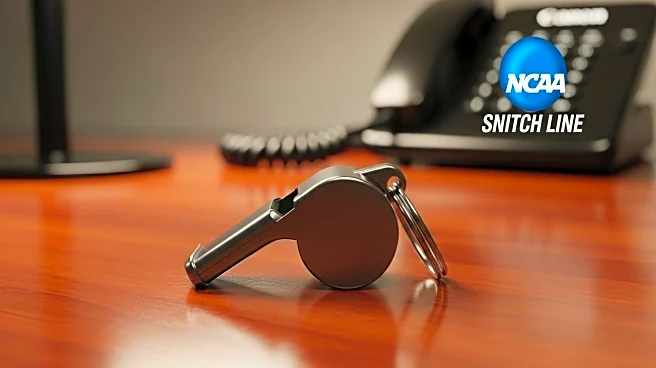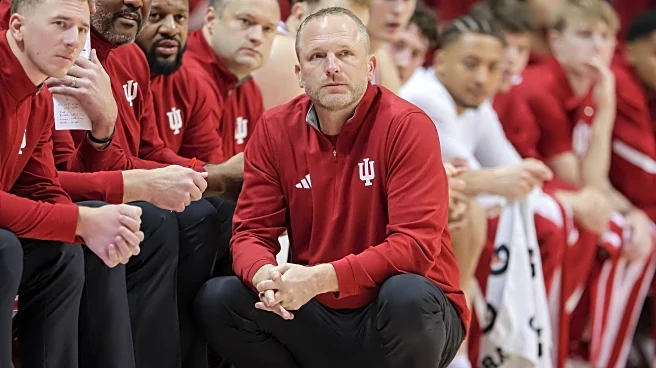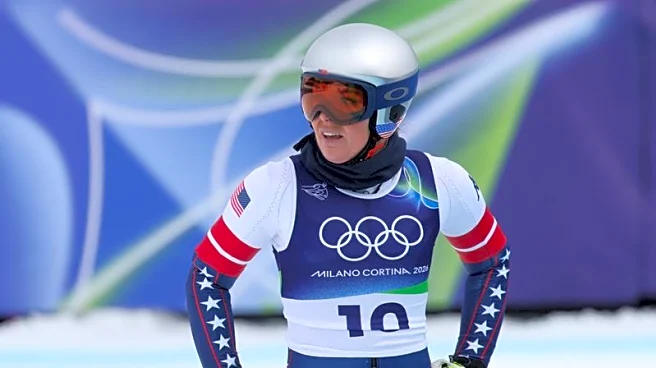What's Happening?
The College Sports Commission (CSC) has launched a new initiative aimed at curbing cheating in college football by introducing a snitch line. This tool is designed to allow anyone, including coaches, players, athletic directors, boosters, and the general public, to report potential violations of rules related to Name, Image, and Likeness (NIL) or revenue sharing. The CSC promises to protect the identity of those who report and assures continued engagement with the informants. This move comes amidst a backdrop of high compensation for Division I football head coaches, with salaries reaching up to $13 million annually. The initiative is seen as a response to various scandals and allegations of cheating within college sports, including instances of fake classes and improper benefits to athletes.
Why It's Important?
The introduction of the snitch line by the CSC is significant as it represents a proactive approach to addressing the pervasive issue of cheating in college sports. This initiative could potentially lead to increased transparency and accountability within college athletics, impacting how universities manage their sports programs. The move may also influence public perception of college sports, as it highlights ongoing efforts to maintain integrity in the face of lucrative financial incentives. Stakeholders such as universities, athletes, and sponsors may experience shifts in their operations and relationships due to the increased scrutiny and potential exposure of violations.
What's Next?
The implementation of the snitch line is likely to result in a surge of reports, as individuals take advantage of the anonymity offered by the system. The CSC will need to manage these reports effectively to ensure that legitimate concerns are addressed while avoiding frivolous claims. Universities and athletic programs may need to reassess their compliance strategies and prepare for potential investigations. Additionally, the CSC's approach may prompt other sports organizations to consider similar measures, potentially leading to broader changes in how sports governance is conducted.
Beyond the Headlines
The ethical implications of the snitch line are complex, as it raises questions about privacy, trust, and the potential for misuse. While the initiative aims to uphold fairness, it could also foster a culture of suspicion and rivalry among teams and individuals. The long-term impact on college sports culture and the relationships between athletes, coaches, and institutions remains to be seen, as the balance between enforcement and community cohesion is navigated.











